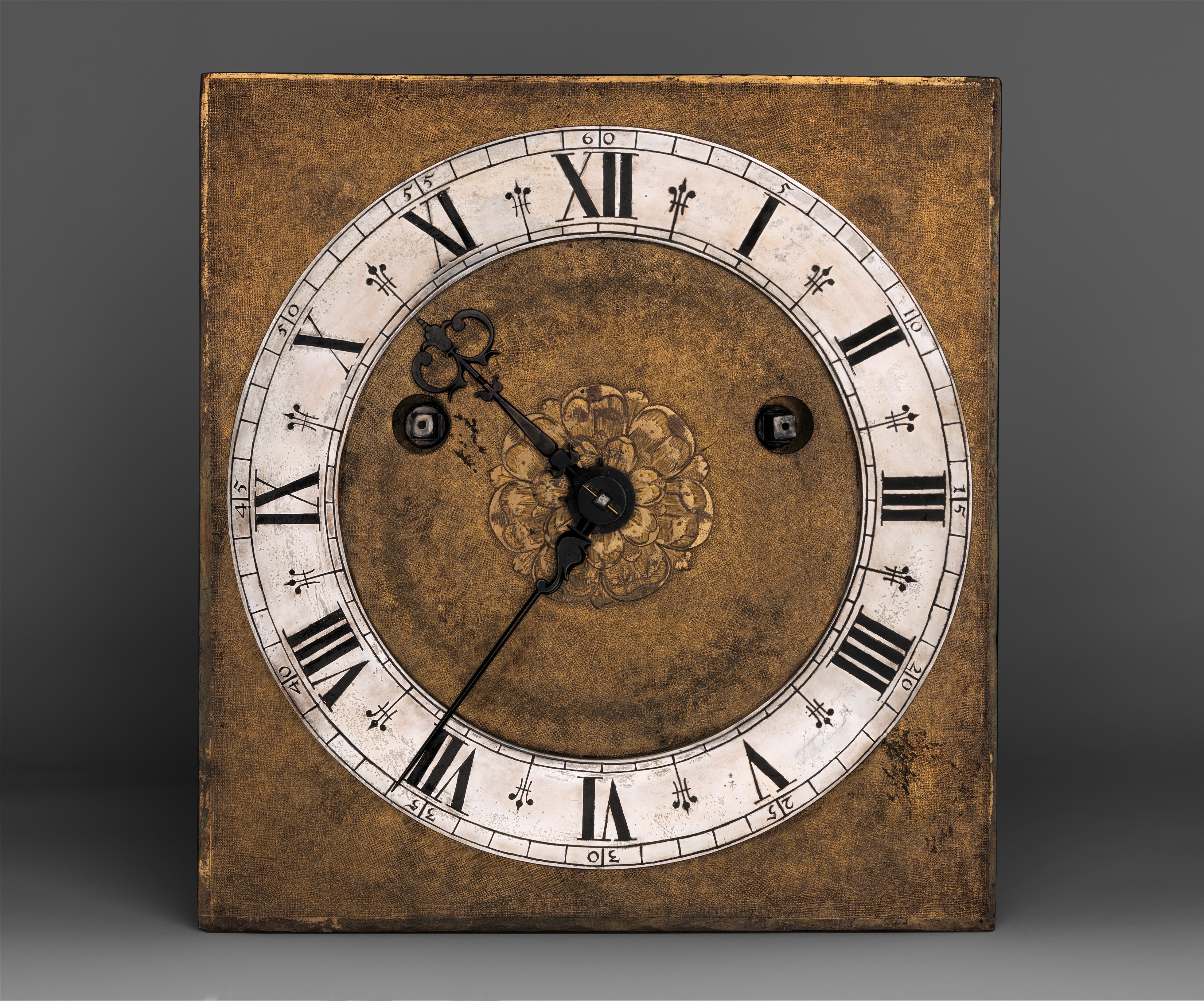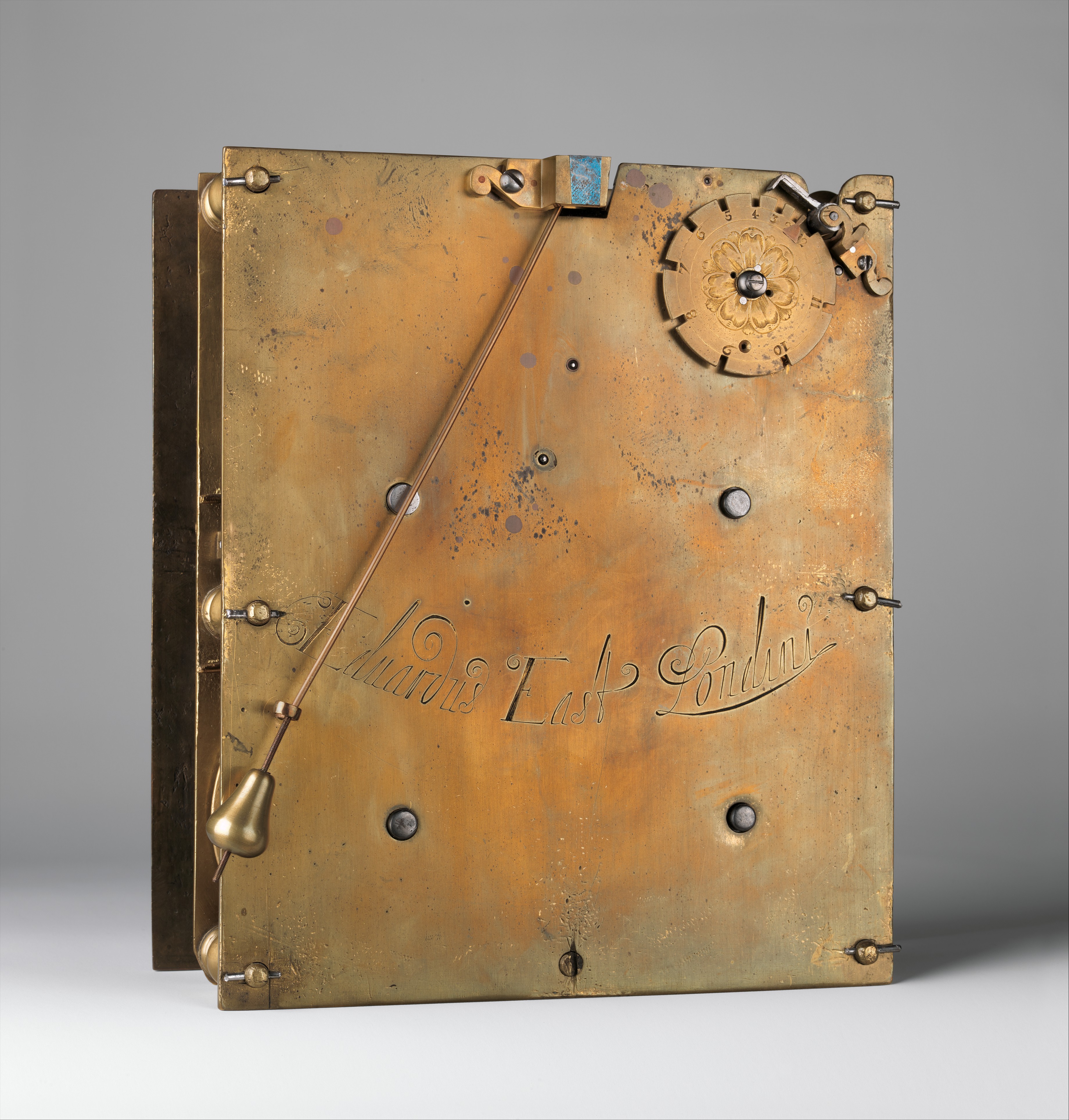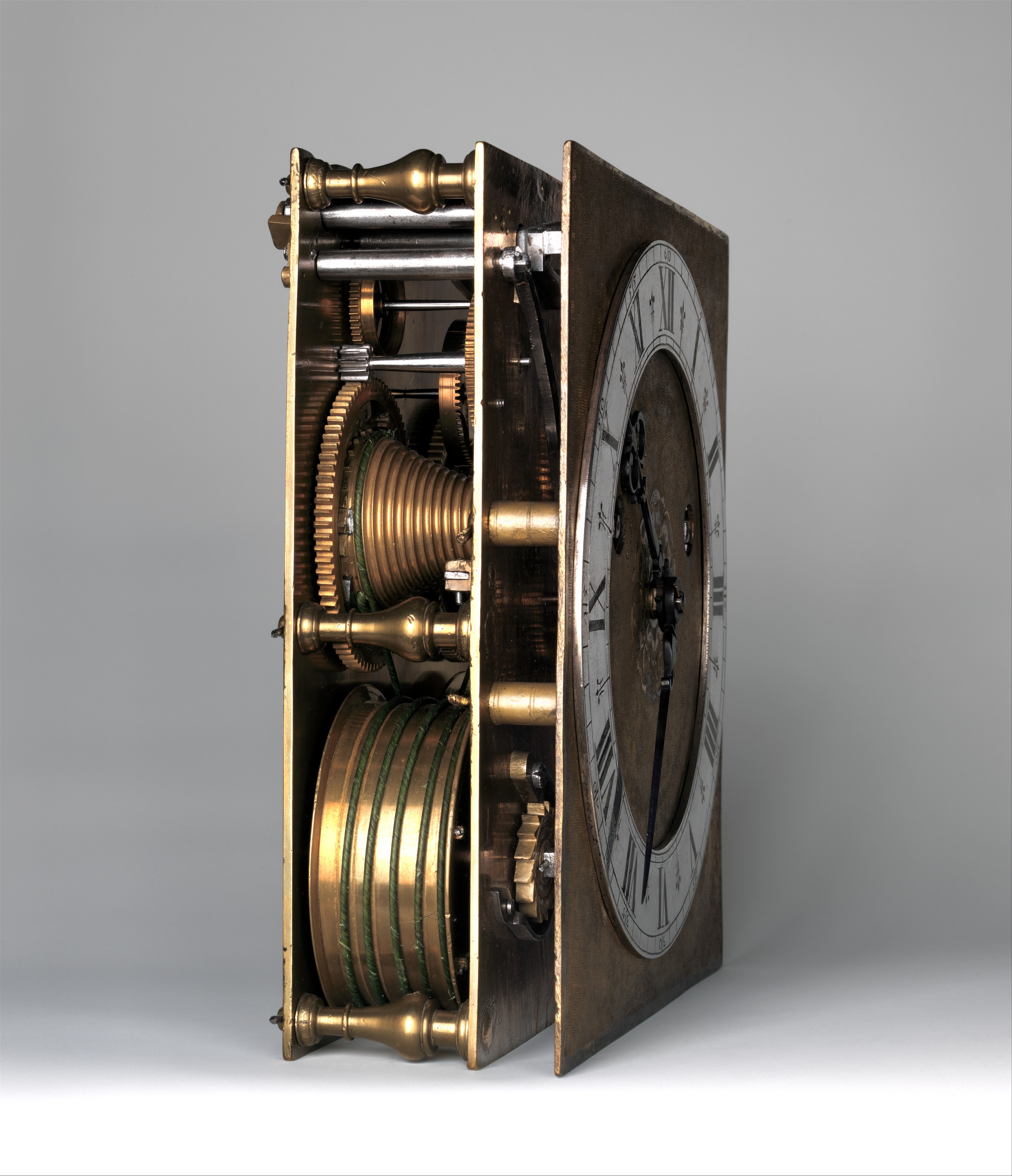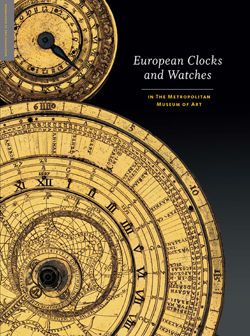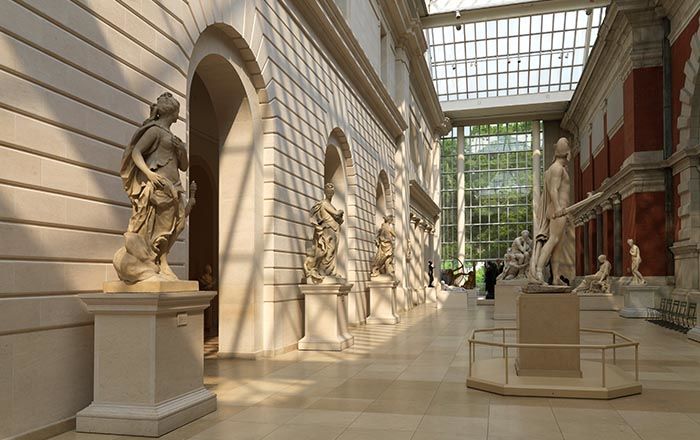Table or bracket clock
Clockmaker: Edward East British
Not on view
Trained as a goldsmith, Edward East was a founding member of the London Clockmakers’ Company (1631). A rival of the Fromanteels both in business and politics, East, a royalist, was appointed clockmaker in 1660 to the newly restored Charles II. Like the Fromanteels he quickly recognized the importance to timekeeping of the Huygens pendulum, but East was not a part of their Anglo-Dutch Protestant circle. The relatively plain wooden case of this clock owes much to the design of the first Dutch pendulum clocks and marks it as an early product of the new technology of clockmaking in England. The movement, with its characteristically heavy brass plates, was greatly modified by later owners; at some unknown time it was reconverted from an anchor escapement to a historically correct verge. It is spring driven, with a duration of a single day, and strikes the hours on a single bell. The case has been newly returned to something approaching its original simplicity.
Due to rights restrictions, this image cannot be enlarged, viewed at full screen, or downloaded.
This artwork is meant to be viewed from right to left. Scroll left to view more.


